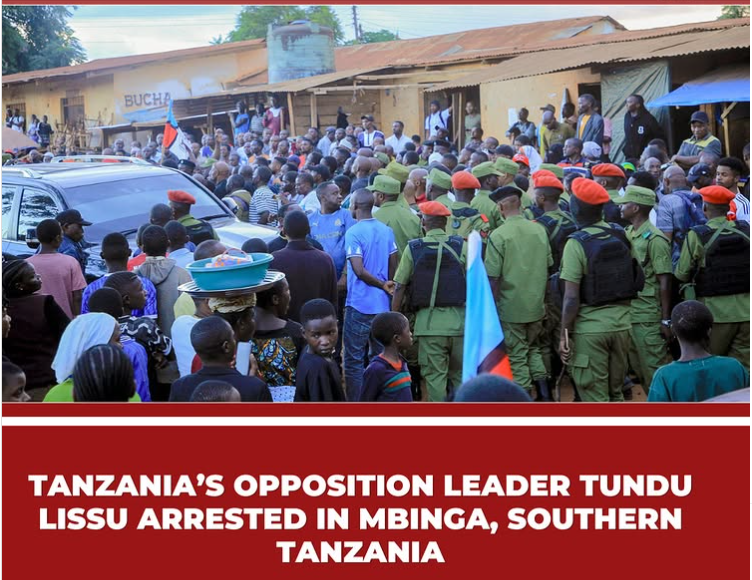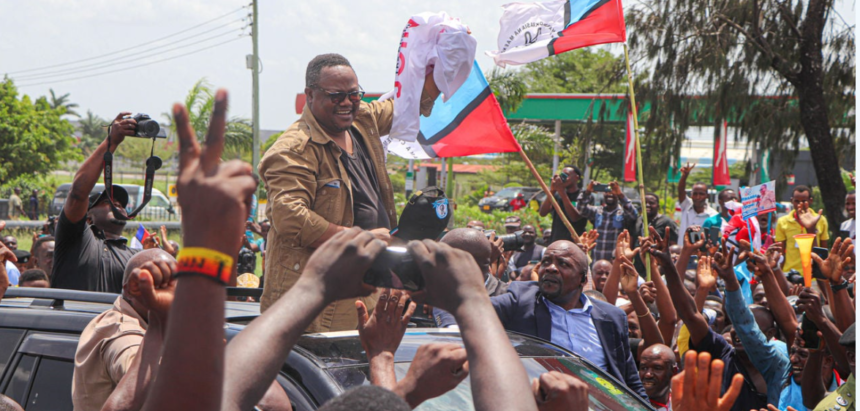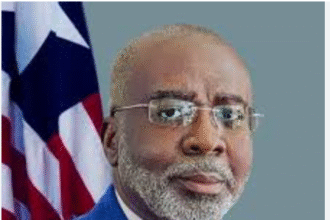By Simba Munyua
DAR ES SALAAM – Concerns are mounting over the state of democracy in Tanzania as the country’s main opposition party, Chadema, has been barred from participating in the upcoming general election scheduled for October. The move comes just days after Chadema’s leader, Tundu Lissu, was charged with treason, further fueling accusations of a government crackdown on political dissent.
According to Ramadhani Kailima, Director of Elections at the Independent National Elections Commission, Chadema was disqualified for failing to sign a code of conduct document by Saturday’s deadline. “Any party that did not sign the code of conduct will not participate in the general election,” Kailima stated, adding that Chadema would also be banned from participating in any by-elections until 2030.

Chadema, however, maintains that its decision not to participate in the signing ceremony was a deliberate act of protest as part of its “No Reforms, No Election” campaign. Lissu, a vocal critic of the current electoral system, argues that free and fair elections are impossible without significant changes. He has specifically called for an overhaul of the electoral commission, arguing that its current composition, with appointees directly chosen by President Samia Suluhu Hassan, compromises its impartiality.
The arrest of Lissu last week, following a rally where he called for electoral reforms, has drawn sharp criticism. He is accused of inciting a rebellion and attempting to disrupt the elections. His lawyer, Rugemeleza Nshala, has dismissed the charges as politically motivated, stating, “You cannot separate these charges from politics.” Lissu is currently remanded in custody, and his treason case has been adjourned until April 24th.
This latest development raises serious questions about the fairness of the upcoming elections, where Lissu was expected to challenge incumbent President Samia Suluhu Hassan. The ruling CCM (Chama Cha Mapinduzi) party, which has governed Tanzania since 1977, is widely expected to retain power.
While Hassan initially garnered praise for reversing some of the authoritarian policies of her predecessor, John Magufuli, upon assuming office in 2021, her government has faced increasing accusations of suppressing political opposition. Campaigners and opposition parties have cited arrests and abductions of opposition members as evidence of an escalating crackdown. The government has denied these accusations and launched an investigation into the abductions.
Lissu’s political career has been marked by repeated confrontations with authorities. He has been arrested on numerous occasions and, in 2017, survived a brutal assassination attempt where his vehicle was riddled with 16 bullets. He eventually sought exile before briefly returning in 2020 to challenge Magufuli in that year’s election. He left again following the results, citing irregularities. He returned once more in 2023 following changes introduced by Hassan, measures her government touted as aimed at fostering greater political freedom for the opposition.
The banning of Chadema and the ongoing legal challenges faced by Lissu raise concerns about the future of multi-party democracy in Tanzania and cast a shadow over the integrity of the upcoming elections. The international community is likely to watch the situation closely, urging the Tanzanian government to ensure a level playing field for all political actors and uphold democratic principles.









